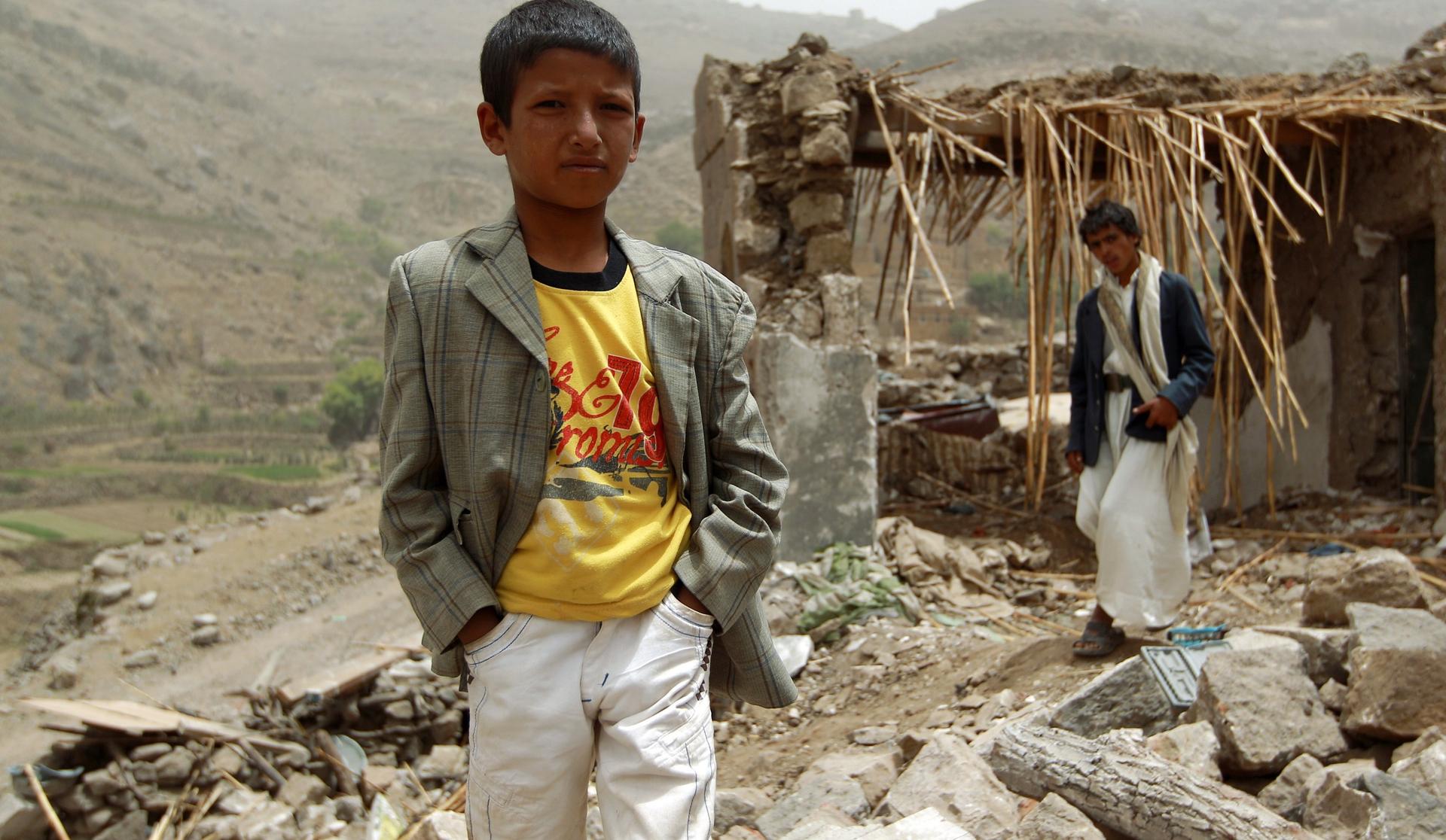Saudi airstrikes in Yemen are having the wrong kind of impact
A Yemeni boy stands in front of a damaged house in the village of Bani Matar in Yemen on April 4, 2015, a day after it was struck by a Saudi airstrike.
Editor's note: This is Chatter, our morning rundown of what you need and want to know around the world. Fortunately for us all, you can have Chatter emailed to you every day. Just sign up here!
NEED TO KNOW:
It's been three weeks since Saudi Arabia decided to launch airstrikes against Houthi rebels in Yemen. In that time, the rebels have not lost ground. They have not stopped fighting. The Saudi- and US-backed Yemeni government remains essentially in exile in its own country.
The airstrikes — there have been more than a thousand of them — instead have had an impact of another kind: hundreds of civilians have been killed, more than a hundred thousand displaced, and access to food, water and electricity has been disrupted for millions. From the perspective of many Yemenis, Saudi Arabia is the worst aggressor of them all.
On top of that, the intervention by Saudi Arabia is ramping up the sectarian nature of the conflict. Here is basically what's happening: the Houthi rebels are Shia. The Yemeni government — which is almost entirely ineffectual even when there's peace — is aligned with Saudi Arabia, which is Sunni. Saudi Arabia wants things to stay that way because it's paranoid about the geopolitical resurgence of Shia Iran. The United States fits into this because it needs a friendly government willing to let it fight Al Qaeda in Yemen with its drones. (A US drone killed a top Al Qaeda cleric just this week.)
Now Iraq is wading into it. During a trip to Washington yesterday, Iraq's prime minister criticized the Saudi military campaign in Yemen. He said it had gone “too far” and feared it could spark a wider sectarian conflict. That's rich coming from the Iraqi government, which is mostly Shia. Its poor treatment of Sunni populations at home has helped feed the ranks of the Islamic State.
The situation is a mess. It's so bad, in fact, that the UN envoy to Yemen quit — a decision he announced on Facebook. It's likely he was asked to quit. Both Saudi Arabia and the Yemeni government itself have expressed disappointment with the envoy's ability to negotiate peace between, well, anyone.
The envoy's departure will not affect the delivery of UN aid packages to Yemen, which are vital for one of the world's poorest and most hungry nations.
WANT TO KNOW:
The detente between Cuba and the United States is moving ahead faster than anyone could have imagined. You'd think it would take longer to unravel a half-century of hostility. But already political prisoners have been released, travel bans have been lifted and some restrictions on international business have eased. Netflix, for instance, is now accessible in Cuba. What greater sign of peace is there than that?
Most significant, though, was Tuesday's announcement from US President Barack Obama that the United States would remove Cuba from its list of state sponsors of terror. That'll change everything. The move came days after Obama met Castro in Panama. They gave a smiley handshake for the cameras and — that simply — history was made.
It's easy to get overwhelmed with optimism. But since we are global news organization it's our job to tamper such sentiment. The truth is, a full detente is far away. The big barrier? US Congress, writes GlobalPost Senior Correspondent Ioan Grillo, who is based in the region.
The decision to remove Cuba from the terror list needs to be approved by Congress. Even more significantly, Congress will have to approve the lifting of trade embargoes and economic sanctions. It will likely be a fierce debate. The opening of embassies is another key step toward normalizing ties. Congress will also have to approve the appointment of an American ambassador.
But if the Obama administration can successfully navigate the famously crippling politics of the legislative branch of the American government, it's just a matter of time before he can triumphantly stroll the streets of Havana.
STRANGE BUT TRUE:
The very early days of the 2016 US presidential election have arrived. That means it's the time when a mostly motley crew of politicians, who are so entirely confident that they can run the “free” world, wade into the murky swamp of world affairs.
These candidates need to show they know what's happening out there — that they can handle America's wars, drones, nuclear deals, trade partnerships, and everything else. The effort is often embarrassing. Here is but one example: "If I can take on 100,000 protesters. I can do the same across the world." That is Wisconsin Governor Scott Walker explaining why he'd be qualified to face the threat posed by the Islamic State.
There are so many more amazing examples. GlobalPost's Timothy McGrath was kind enough to compile the most insanely clueless.
Every day, reporters and producers at The World are hard at work bringing you human-centered news from across the globe. But we can’t do it without you. We need your support to ensure we can continue this work for another year.
Make a gift today, and you’ll help us unlock a matching gift of $67,000!
